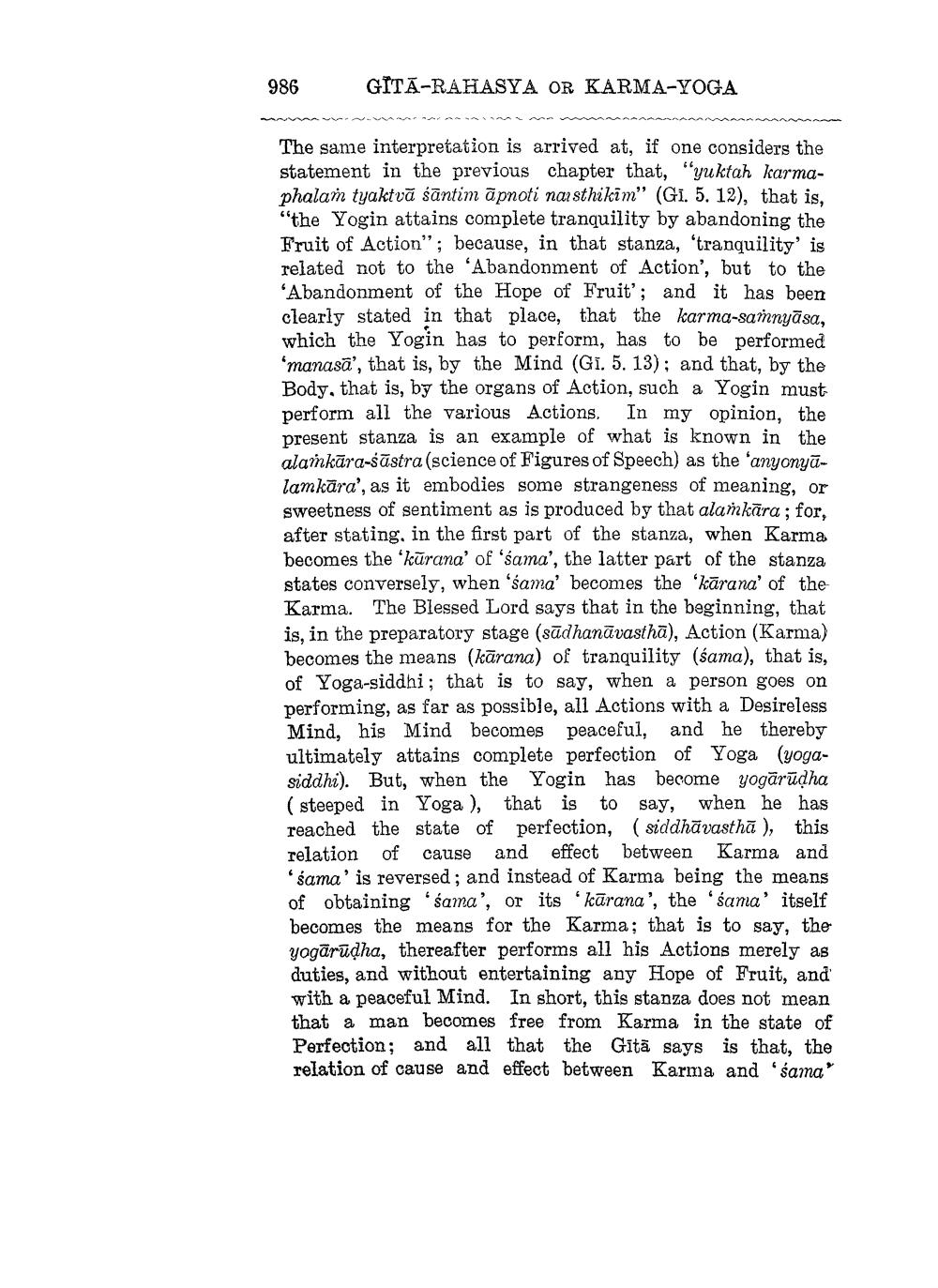________________
986
www
GITA-RAHASYA OR KARMA-YOGA
~.m
The same interpretation is arrived at, if one considers the statement in the previous chapter that, "yuktah karmaphalam tyakṭvā sāntim āpnoti naisthikim" (G1. 5. 12), that is, "the Yogin attains complete tranquility by abandoning the Fruit of Action"; because, in that stanza, 'tranquility' is related not to the 'Abandonment of Action', but to the 'Abandonment of the Hope of Fruit'; and it has been clearly stated in that place, that the karma-samnyasa, which the Yogin has to perform, has to be performed 'manas", that is, by the Mind (GI. 5. 13); and that, by the Body, that is, by the organs of Action, such a Yogin must perform all the various Actions. In my opinion, the present stanza is an example of what is known in the alamkara-sastra (science of Figures of Speech) as the 'anyonyalamkara', as it embodies some strangeness of meaning, or sweetness of sentiment as is produced by that alamkara; for, after stating, in the first part of the stanza, when Karma becomes the 'kurana' of 'sama', the latter part of the stanza states conversely, when 'sama' becomes the 'karana' of the Karma. The Blessed Lord says that in the beginning, that is, in the preparatory stage (sudhanävastha), Action (Karma) becomes the means (karana) of tranquility (sama), that is, of Yoga-siddhi; that is to say, when a person goes on performing, as far as possible, all Actions with a Desireless Mind, his Mind becomes peaceful, and he thereby ultimately attains complete perfection of Yoga (yogasiddhi). But, when the Yogin has become yogürüḍha (steeped in Yoga), that is to say, when he has reached the state of perfection, (siddhävasthä), this relation of cause and effect between Karma and 'sama' is reversed; and instead of Karma being the means of obtaining 'sama', or its 'kurana', the 'sama' itself becomes the means for the Karma; that is to say, the yogārudha, thereafter performs all his Actions merely as duties, and without entertaining any Hope of Fruit, and with a peaceful Mind. In short, this stanza does not mean that a man becomes free from Karma in the state of Perfection; and all that the Gita says is that, the relation of cause and effect between Karma and 'sama"




